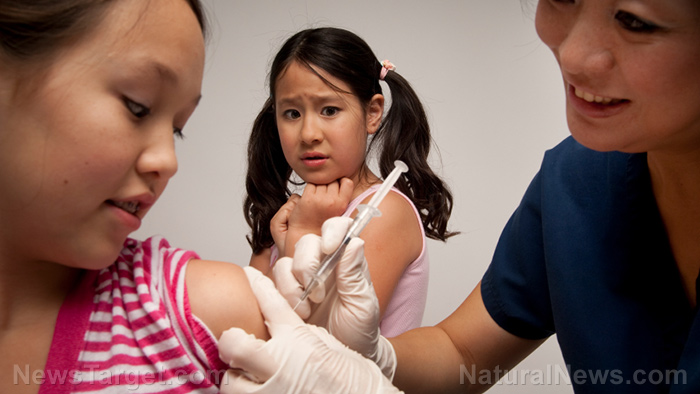Pfizer to sell COVID-19 vaccine at 10,000% markup over production cost in 2023
10/25/2022 / By Kevin Hughes

Governments around the world will soon pay more to buy the Wuhan coronavirus (COVID-19) vaccine from Pfizer – a LOT more.
For more than two years, the United States government has bought all of the COVID vaccines given in the country in what has become the biggest public vaccination campaign in American history. (Related: Pfizer bullied, blackmailed government officials to push covid vaccines and maximize corporate profits.)
Those procurements have included more than 500 million doses from Pfizer. The price of the first 100 million was about $20 a dose, thanks to a previous agreement in which the U.S. government invested $1.95 billion in vaccine production. The remaining doses were purchased for about $30 each.
Nevertheless, once the U.S. government supplies dry up, probably in the first quarter of 2023, the COVID vaccines and therapeutics will be transferred to the commercial health platforms and Pfizer can increase the cost of its shots.
On October 20, the company declared that it plans to sell the COVID vaccine, which is marketed under the brand name Comirnaty, for $110 to $130 per dose.
This is about four times the present selling price and 100 times the value cost of producing the vaccine.
Pfizer spending less than $1.20 to manufacture each dose of COVID vaccine
Pfizer spends less than $1.20 to manufacture each dose of the vaccine, as reported by The People’s Vaccine Alliance, a coalition of over 100 organizations seeking to end vaccine inequity. This estimate was taken from a study carried out by international nonprofit Oxfam, based on data from the consumer advocacy Public Citizen and the Imperial College London.
The 2023 price represents a 10,000 percent markup over the production cost.
The company did give an explanation for the price increase. “There are key differences between an emergency and traditional model that increases the costs of making and distributing the COVID-19 vaccine,” Pfizer told Quartz via email.
The price, according to the company, includes distributing through several channels and payers instead of one. It added that manufacturing the doses in single vials can be up to three times more costly.
Pfizer stated it had contracts with other developed nations that extend through 2023 with earlier agreed-upon prices. It added the contracts would shift to normal cost as the pandemic distribution model disappears.
Meanwhile, analysts said the move could lead to price increases by competitors.
Moderna had earlier estimated commercial price outlooks in a range of $64 to $100 a shot. It refused to give additional remarks. Novavax’s COVID vaccine, which was approved this year, has not yet achieved a foothold in the U.S. market.
Before Pfizer’s announcement, Novavax Chief Commercial Officer John Trizzino said on Oct. 19 that his company would consider lowering prices to acquire market share.
The business plan, obviously, is to maintain as many vaccine mandates as possible and have health insurance companies cover the cost of repeated vaccinations, child vaccinations and others.
As an example, the Centers for Disease Control and Prevention (CDC) has recommended receiving the bivalent booster two months after a prior booster.
A two-dose primary series and one bivalent mRNA booster dose of either Moderna or Pfizer-BioNTech are recommended for people ages 12 years and older, according to the CDC.
The principal series doses are separated by three to eight weeks and the bivalent mRNA booster dose is given at least two months after completion of the primary series for people who have not received any booster doses, or at least two months after the last monovalent booster dose.
Follow Vaccines.news for more news about COVID-19 vaccines.
Watch the video below to know more about the FDA cover-up that led to the approval of the Pfizer vaccine.
This video is from the Free4eva Media channel on Brighteon.com.
More related stories:
Pfizer CEO says yearly COVID vaccines for Americans “almost certain.”
Pfizer’s COVID-19 vaccines contain nanotechnology to track people, scientists say.
Sources include:
Submit a correction >>
Tagged Under:
big government, big pharma news, BioNTech, bivalent booster, cash cow, CDC, Comirnaty, covid-19, flu shot, government debt, influenza, Moderna, money supply, mRNA booster dose, Novavax, pandemic, Pfizer, public vaccination campaign, United States, US, vaccine, Wuhan coronavirus
This article may contain statements that reflect the opinion of the author
RECENT NEWS & ARTICLES
COPYRIGHT © 2017 BIG PHARMA NEWS




















